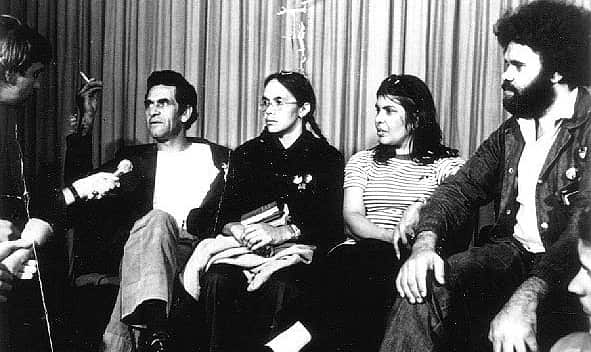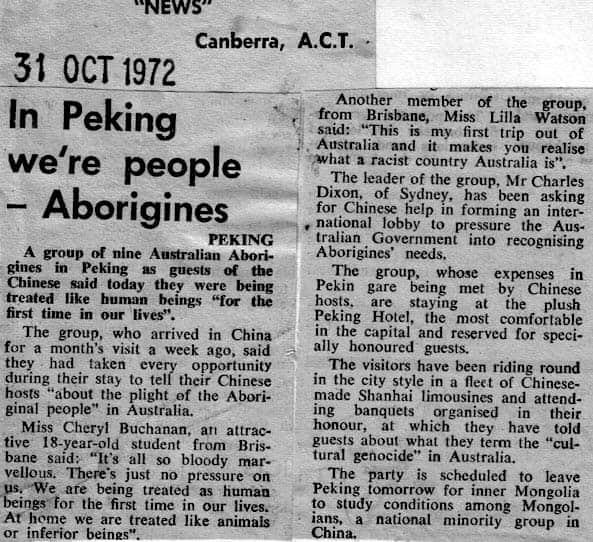In October 1972 nine Indigenous Australians left Sydney on an unusual and controversial mission - they were the first delegation of Indigenous peoples invited to the People’s Republic of China, at a time when the Australian government did not officially recognise the Republic as a country
After Mao Zedong and the Communist Party seized control of mainland China in 1949, the Nationalist Chinese government had retreated to Taiwan, and continued to represent China in the United Nations, calling itself the Republic of China. Most western nations, including Australia, were hesitant to acknowledge the legitimacy of his government, despite pressure from Britain.

Cheryl Buchanan, an 18-year-old university student at the time, told NITV’s Awaken program she vividly recalled their grand reception to the Communist country.
“They laid that red carpet out for us, they said 'welcome home', so there was a sense of commonality.”
Meant as a show of strength for the growing Indigenous activist movement of the 70s, the trip was also an international show of solidarity between minority groups.
“I ran for those gates and I beat them all - I said ‘I want to be the first Aboriginal in China’," she says.
“They had machine guns on the border."
“It didn’t bother me at all, I thought ‘well we’re going to a place where at least they are going to listen to us’.”
The contingent was led by activist and tent embassy pioneer Charles ‘Chicka’ Dixon, and featured a mix of Indigenous men and women from around Australia, and included students, an actor, a labourer and a social worker.
Officially invited and funded by the Chinese government the group embarked on a month long tour of the country, meeting with officials in Peking and also local minority groups in cities and in remote parts of inner Mongolia.
“Our reasons for going was to talk to other minorities ... to talk to those groups and see how their information could help Aboriginal people with the programs that we wanted to establish,” says Cheryl.

“We were able to get an insight into…how communism was working."
“They were attempting to…get a social network and social order in the country that would allow people not to feel destitute and hopeless, and homeless and that was great to see.”
The trip made headlines in Australia, as the group highlighted the ongoing mistreatment of Indigenous peoples back home by screening a documentary in Peking at the Institute of National Minorities, showing violent clashes between police and Indigenous peoples at the tent embassy in Canberra earlier that year.
“Five years after the ‘67 referendum not much had happened and we still seemed to be treated as third class citizens in our own country,” says Cheryl.
“It was really about embarrassing the Australian government- that was the whole purpose of going there.”
However, the rise of Gough Whitlam was signaling a new era in relations between the countries.
As opposition leader, Mr Whitlam had made a historic visit to the country the year before, meeting with the Premier Zhou Enlai.
Just a few weeks after the Indigenous delegation left China in 1972, Gough Whitlam would come to power and establish relations with the People’s Republic, cutting off ties with the Republic of China in Taiwan.
“We were the stepping stone,” says Cheryl.
“In fact we met with (vice-chairman of the Standing Committee of the National People’s Congress) Kuo Mo-Jo, who was Mao’s right-hand man, and we had a meeting with him and it was very obvious that Whitlam was going to gain power in Australia, and this was about opening the door for those Australian relations to begin.”
Delve into the latest Indigenous news and features from NITV's agenda-setting program, The Point. Read more about NITV
Have a story or comment? Contact Us


